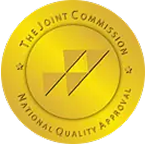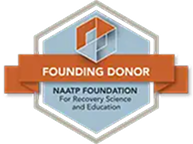ADHD, Autism, and Addiction: Does Neurodivergence Mean a Different Path to Sobriety?

The noise in your head won’t quiet down. Social situations drain every ounce of energy you have. The drink or pill makes the world feel more manageable, so you reach for it more than you’d like to admit. If you’ve recently received an adult autism or ADHD diagnosis, these experiences might suddenly make sense: the restless mind that couldn’t focus in meetings, the sensory overwhelm that substances seemed to muffle, the exhaustion that sent you searching for any kind of relief.
Here’s what you need to know: this isn’t a moral failing, and you’re far from alone. The connection between neurodivergent brains and substance use runs deeper than most people realize.
Recognizing how your brain works isn’t just about making sense of the past. It’s about creating a future where you don’t need to chemically alter yourself to feel comfortable in your own skin.
What Does It Mean to Be Neurodivergent?
Neurodivergence is simply a way of recognizing that some brains work differently. It’s not a flaw or something to be embarrassed about. It’s just a variation, like being left-handed in a right-handed world. Your brain processes information, emotions, and experiences in ways that don’t always match most people, but that doesn’t make you inferior in any way.
The numbers tell us just how common this is. Adult ADHD diagnoses have jumped 15% in just three years (2020-2023), and autism now affects 1 in 54 children, according to the CDC (Centers for Disease Control).
These aren’t just statistics: they represent millions of people who are finally getting answers to lifelong questions about why they feel different. Many are discovering they’re neurodivergent through late-diagnosis autism or ADHD, sometimes not getting diagnosed until their 30s, 40s, or beyond.
Living with ADHD: The Constant Balancing Act
ADHD shows up in three main ways: some people primarily struggle with attention (the daydreamers), others with hyperactivity and impulsiveness (the movers and shakers), and many experience both. If you have ADHD or Adult ASD (Autism Spectrum Disorder/AASD), it might feel like your brain has 20 browser tabs open at once, or like you’re constantly trying to catch up to thoughts that move faster than you can process them.
The Adult ADHD Reality
The challenge is that ADHD brains are wired for novelty and stimulation. When life feels boring or overwhelming, substances can provide that missing piece — the focus that stimulants offer, or the calm that alcohol promises. It’s not weakness; it’s your brain seeking what it needs to function. The relationship between ADHD and substance use, ADHD and alcohol addiction, and drug addiction and ADHD is complex but understandable when you consider how these brains work.
That same wiring also contributes to behavioral addictions. Adults with ADHD are more likely to struggle with compulsive behaviors like gambling, binge eating, overspending, or excessive internet use. These often provide a quick dopamine hit and temporary relief from emotional overload. And these behaviors can become self-soothing routines that mimic the cycle of substance use, even if no drugs are involved.
Research shows that up to 25% of people in addiction treatment have ADHD, though many don’t realize it. The impulsivity that makes you say yes to that extra drink is the same trait that might make you an innovative problem-solver at work. Understanding ADHD and substance use patterns can be the first step toward breaking cycles that no longer serve you.
Autism: Navigating a World That Wasn’t Built for You
Autism is called a spectrum for good reason: no two autistic people are exactly alike. Some are highly verbal and successful in careers but struggle with social nuances. Others might be deeply empathetic but find crowded spaces overwhelming. What unites the autism experience is often feeling out of sync with the world around you.
The Hidden Struggles
Getting an adult autism diagnosis can be complicated, especially for those who’ve learned to mask their differences. You might have spent years forcing yourself to make eye contact, memorizing social scripts, or pushing through sensory discomfort without realizing your brain processes these experiences differently. Many people receive their diagnosis only after recognizing these patterns in themselves or their children.
When the world feels unpredictable or overwhelming, substances offer temporary escape. Marijuana might quiet the sensory overload of a busy restaurant. Alcohol might make social situations feel less like performance and more like genuine connection. These aren’t moral failings — they’re understandable responses to living in a world that doesn’t accommodate different ways of being.
Where Neurodivergence and Addiction Intersect
Whether you have ADHD, autism, or both, certain challenges tend to show up that can increase vulnerability to substance use. Understanding the patterns of addiction and ADHD or ADD and substance abuse can help you recognize that your struggles make sense in light of how your brain works. Do you recognize these patterns in yourself or your loved one?
- Emotional regulation feels like an extreme sport. When your emotions come fast and intense, substances can feel like the only reliable way to turn down the volume. That drink feels essential to emotional survival.
- Social connections are complicated. Making friends or maintaining relationships can feel exhausting when you’re constantly translating between your internal experience and what others expect. Substances might seem to bridge that gap, making social situations feel more manageable.
- Sensory overwhelm is real. Whether it’s the fluorescent lights at work, the texture of certain foods, or the sound of multiple conversations, your nervous system might be constantly on high alert. Using substances to cope with this overwhelm makes perfect sense.
- Other mental health conditions often ride sidecar: Anxiety, depression, and trauma are common companions to neurodivergence. When you’re managing multiple conditions, substances can feel like the only thing that provides relief from the constant internal storm.
The Treatment Challenge: One Size Doesn’t Fit All
Traditional addiction treatment often misses the mark for neurodivergent individuals. Group therapy in overstimulating environments, rigid schedules that don’t account for executive function differences, or providers who don’t understand the complexity of ADHD and addictions can leave you feeling more broken than before. Many treatment programs aren’t designed with autism or ADHD and drug use patterns in mind.
For people with ADHD, there’s the added complexity of stimulant medications. Prescriptions drugs like Adderall, Ritalin, and others can be life-changing for managing symptoms, but they also carry risks for people with substance use histories. It’s not impossible to navigate, but it requires providers who understand both conditions.
For individuals with late-diagnosis autism — who are nearly nine times more likely than non-autistic peers to use recreational drugs to cope — traditional treatment can feel like trying to fit a square peg into a round hole. The social demands, unpredictable routines, and sensory overwhelm built into many programs often result in added stress rather than relief.
Tailored Recovery That Actually Works
Recovery is absolutely possible when treatment is designed with neurodivergent brains in mind. Forward-thinking treatment centers recognize that effective addiction treatment must address the whole person, including how conditions like ADHD and autism influence recovery. The best programs understand that addiction often coexists with anxiety, depression, and other mental health challenges — frequently stemming from years of feeling misunderstood or different.
Key Components in ADHD Recovery:
Medication partnerships that make sense. This might mean non-stimulant options like atomoxetine, or careful monitoring of stimulants to help your brain function without increasing addiction risk.
Skills that work with your brain, not against it. Instead of forcing yourself into neurotypical organization systems, you learn strategies that harness your natural strengths — body doubling for accountability, timers for focus, or making routine tasks more engaging.
Understanding your patterns. You learn to recognize when impulsivity drives decisions and develop pause strategies that work for your specific brain. This isn’t about perfect self-control — it’s about working with your neurology, not against it.
Treatment programs that offer individualized care, like what we do here at Fellowship Hall, can help determine the right length of stay and therapeutic approach based on your unique needs rather than a one-size-fits-all timeline.
Key Components in Autism Recovery:
Sensory-friendly environments. Treatment spaces with quiet areas and predictable routines can make the difference between feeling overwhelmed and feeling safe to do the work.
Clear structure and visual supports. Written schedules and clear expectations reduce anxiety and free up mental energy for recovery work.
Honoring your communication style. Whether you process better in writing or need extra time to respond, effective treatment adapts to your needs rather than forcing you to fit arbitrary standards.
Universal Principles That Really Help
While every recovery journey is unique, certain principles consistently help neurodivergent individuals feel seen, supported, and successful in treatment. Programs that honor these principles create space for healing without forcing people to mask or conform.
- Peer support that gets it. Connecting with other neurodivergent people in recovery validates your experience. You’re not the only one who needs to stim during meetings or finds small talk exhausting.
- Trauma-informed care. Many neurodivergent people carry the weight of being told they’re “too much” or “not enough.” Healing begins with safe environments that honor lived experience and address the unresolved grief or rejection that often fuels addiction.
- Family involvement that makes sense. When loved ones learn about addiction and neurodivergence, they’re better equipped to offer real support. Education improves communication and helps families become healthier systems of care.
- Flexibility within structure. Effective programs offer consistent routines with room for individual needs — whether that’s longer residential stays or the rhythm of outpatient care.
Recovery works best when programs respect how different brains work. That’s exactly how we approach our residential treatment here at Fellowship Hall. With the right mix of empathy, structure, and flexibility, neurodivergent people can find support that meets them where they are.
Your Recovery Journey is Valid
Recovery looks different for everyone, especially for neurodivergent individuals. Your path might include medication, therapy, peer support, or any combination of approaches that works for your unique brain.
If you’re considering treatment, you deserve care that sees your neurodivergence as part of who you are, not a problem to be fixed. Your ADHD or autism cannot be separate from your addiction recovery. It must be integral to your treatment plan.
The goal isn’t to make you neurotypical. It’s to help you build a life where your brain differences are strengths, not sources of shame.
Fellowship Hall offers comprehensive addiction recovery programs designed for the whole person. Our team understands that ADHD, autism, and addiction intersect in complex ways. By providing individualized care, family support, and continuing community connections, we make lasting recovery possible. Whether you’re just beginning to understand how your brain works differently, or traditional approaches haven’t fit, we’re here to help you build recovery that honors who you are.
Contact Fellowship Hall today to learn more about our residential treatment programs and take the first step toward recovery that works for your unique brain.
"*" indicates required fields
CONNECT WITH US
Our Admissions Staff Is Here to Help
Not sure if you or someone you love needs help? Call our Admissions Staff who can help you assess the next step at 336-553-6596."*" indicates required fields






